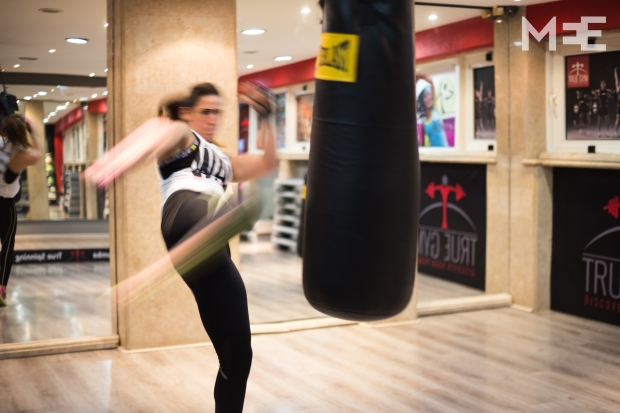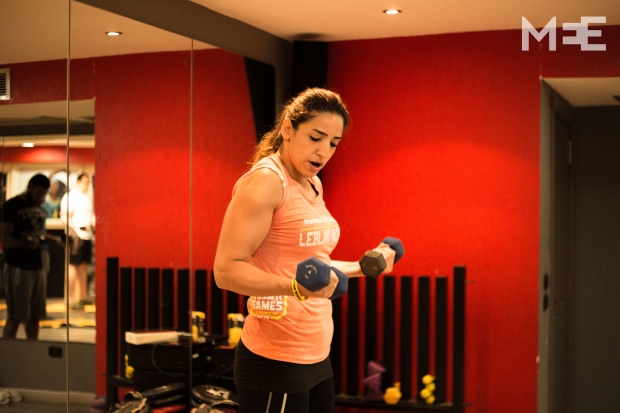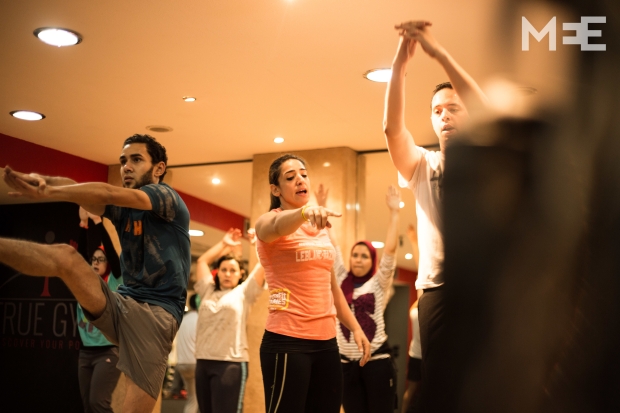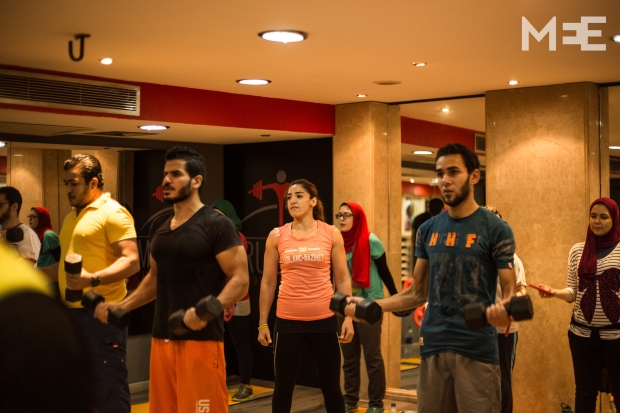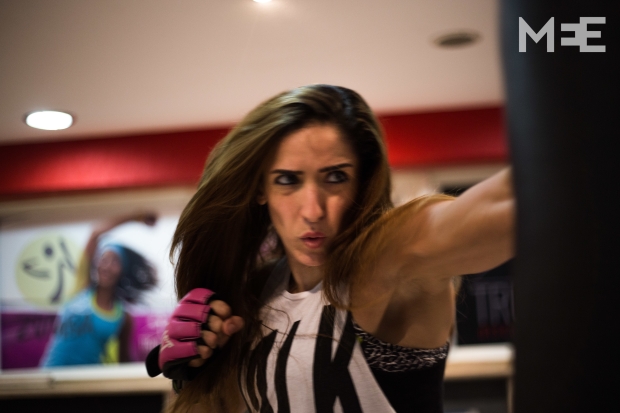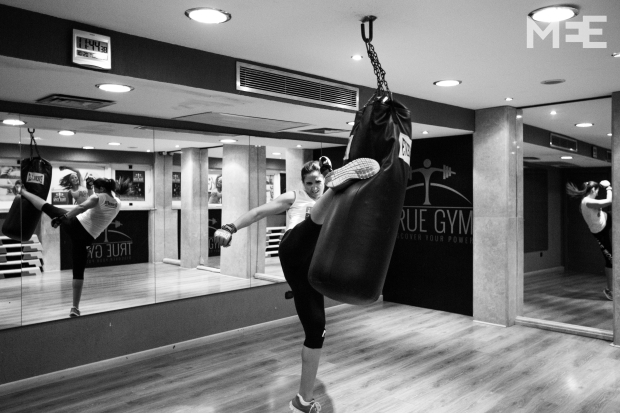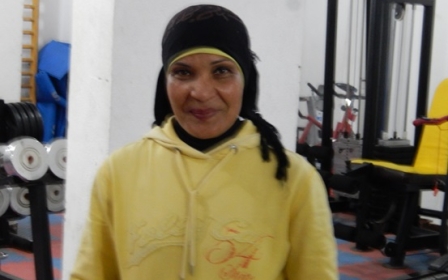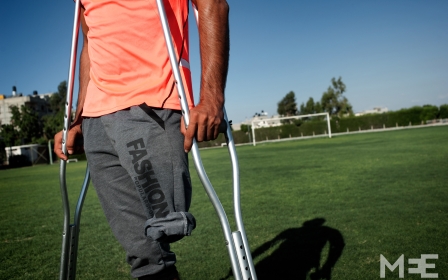Dalia al-Amry: Egypt’s kickboxing and crossfitting champion
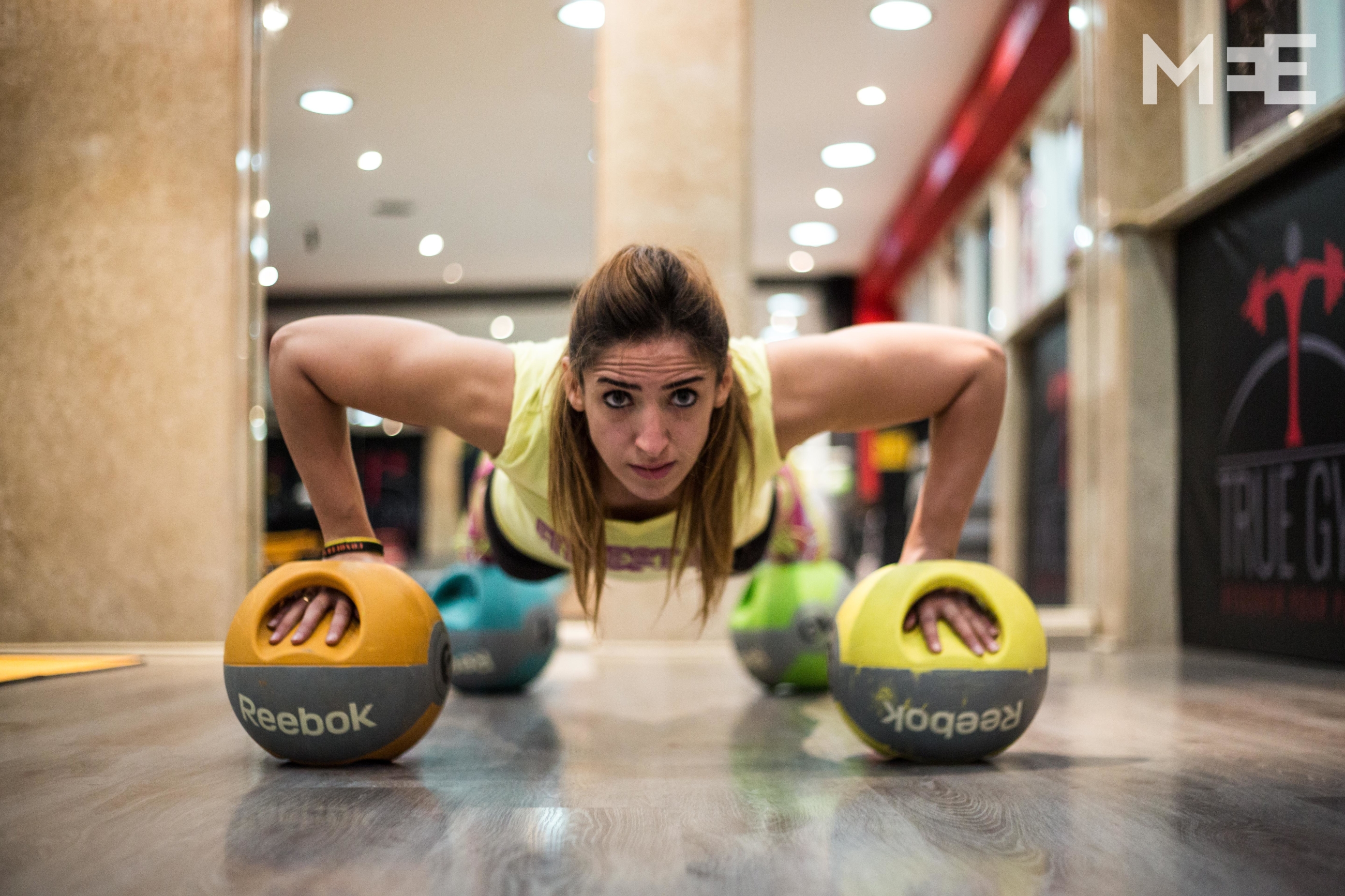
Two years ago, Dalia al-Amry was working as a secretary in a large sales firm, with a sizeable and secure salary. She had everything she wanted, but she felt restless.
“I’ve always felt that there was something missing," she said. "I was leading the typical life of many Egyptian girls; I finished high school, went to college, got myself a job and was in the waiting zone every Egyptian girl endures until a groom finally arrives. I was in a holding pattern.”
She had also gained weight and so, in a bid to shed the pounds, she joined a gym near her home, a move that dramatically changed her life.
In only three months, Dalia was shocked to see the radical change to her body, health and lifestyle.
She was working out regularly and embraced a healthy eating regimen, centred primarily on fresh fruit and vegetables. In addition to making changes in her own life, Dalia also discovered how much she enjoyed helping other trainees and friends and she started to share important information regarding health, nutrition and fitness.
"I realised what I wanted to do with my life. I wanted to have the time to work out more, and I wanted to help others take care of their health too,” she said.
The transition to her new dream career was not easy though. As Amry worked towards fulfilling her newly discovered goals, she faced many obstacles. She soon realised that in order to dedicate herself to training fully, she would have to quit her steady job and take a big risk.
There were financial considerations but it was her family’s disapproval that was the biggest hurdle. They were worried that she would be socially ridiculed and even spurned and that the career move would seriously hinder her chances of finding an eligible Egyptian husband.
“I can’t even tell you how many heated discussions I went through with my parents, but I was as determined as I had ever been in all my life,” Amry said.
She eventually quit her job and became a full time trainer at a Cairo gym. Then, a year and a half after first joining the gym all her perseverance paid off and she was named Egypt’s female kickboxing and Crossfit champion. Crossfit is a type of training used by police academies and military special operations units and is deemed to be particularly gruelling.
“I felt such a great deal of happiness. I felt relief that I was able to prove myself in the eyes of my parents,” she said. “They had been a bit sceptical, but starting from that day, they showered me with their trust and support.”
After the grief that Amry initially went through with her family, she decided to help other Egyptian girls and women who were looking to get into sport. A year after quitting her job, she began an initiative to help girls outside Cairo gain regular access to sports facilities and equipment - a privilege that is often reserved for more middle-class and urban Egyptians.
Aya Fahem, an activist and a researcher working at the Egyptian Centre for Women’s Rights (ECWR) told Middle East Eye that a recent study conducted by the centre found that “only 30 percent of Egyptian women between 18-35 had access to sports facilities, and the rest, which is the majority, had no access for various reasons, including the husband’s demands or unjustified reluctance from their families."
As part of the initiative, every week Amry led a team of women, mostly activists and athletes, to visit a small town or village, where they met with the town’s women, and explained how to begin doing basic exercises in the home using simple everyday tools, such as water bottles, as weights.
They were also taught why training was important both psychologically and physically.
“The women that we talk to - especially the young girls - are like fertile soil, and they take in our words like water,” Amry said. “I still get phone calls from some of them, asking me questions about nutrition and different aspects of their training.”
Despite small steps like these, however, Amry continues to be believe that Egyptian society remains hostile to female athletes and that girls and women have to struggle especially hard become athletes.
After just a year, Amry’s exercise initiative was forced to shut down, with her blaming governmental bureaucracy and lack of funding for the programme’s suspension.
Apart from economic challenges, Amry says that female athletes face a plethora of other obstacles, including the commonly held belief that women should stay at home. According to Amry, even if men publicly deny this, most prefer their daughters and wives to stick to more traditional roles and not to challenge female stereotypes.
“Most of the men I meet want to confine women to the house, and they are afraid of strong working women,” Amry said. “A lot of girls are forced to kill their dreams and subdue their ambitions and just go along with the norms expected of them by society which constantly tells them the man is always right.”
Amry also places the responsibility on Egyptian parents. “From the moment a girl is born, her family is basically preparing her for the day she is going to be married. It is instilled in girls that if they want to do something different, they should do it in her husband’s house,” she said.
“If they want to dance, sing or do sports, the answer is always ‘when you become a wife, you can do whatever you want’ so girls start to link marriage with freedom, and agree upon the first man asking for their hand, only to be faced with the fact that they won’t be able to do what they want - either because of the responsibilities of marriage, or because of the husband’s orders.”
With resources scarce and prejudices remaining in Egypt, she says that it is key to build up a network of like-minded people and help those around you to try and live up to their aspirations.
Even after the official workout stops at her gym, Amry stays behind to try and develop solid friendships that transcend just exercise.
Walaa Fathi, one of Amry’s trainees, who has been working out with her for the last three months, says that going to the gym has been an extremely positive experience.
“We all have a genuine conversations with coach Dalia before and after our classes, she cares and provides help any time we are in need, and the special thing about her is that she isn’t just a regular coach, she is a champion who sets an example for us with her enthusiasm and energy."
New MEE newsletter: Jerusalem Dispatch
Sign up to get the latest insights and analysis on Israel-Palestine, alongside Turkey Unpacked and other MEE newsletters
Middle East Eye delivers independent and unrivalled coverage and analysis of the Middle East, North Africa and beyond. To learn more about republishing this content and the associated fees, please fill out this form. More about MEE can be found here.


